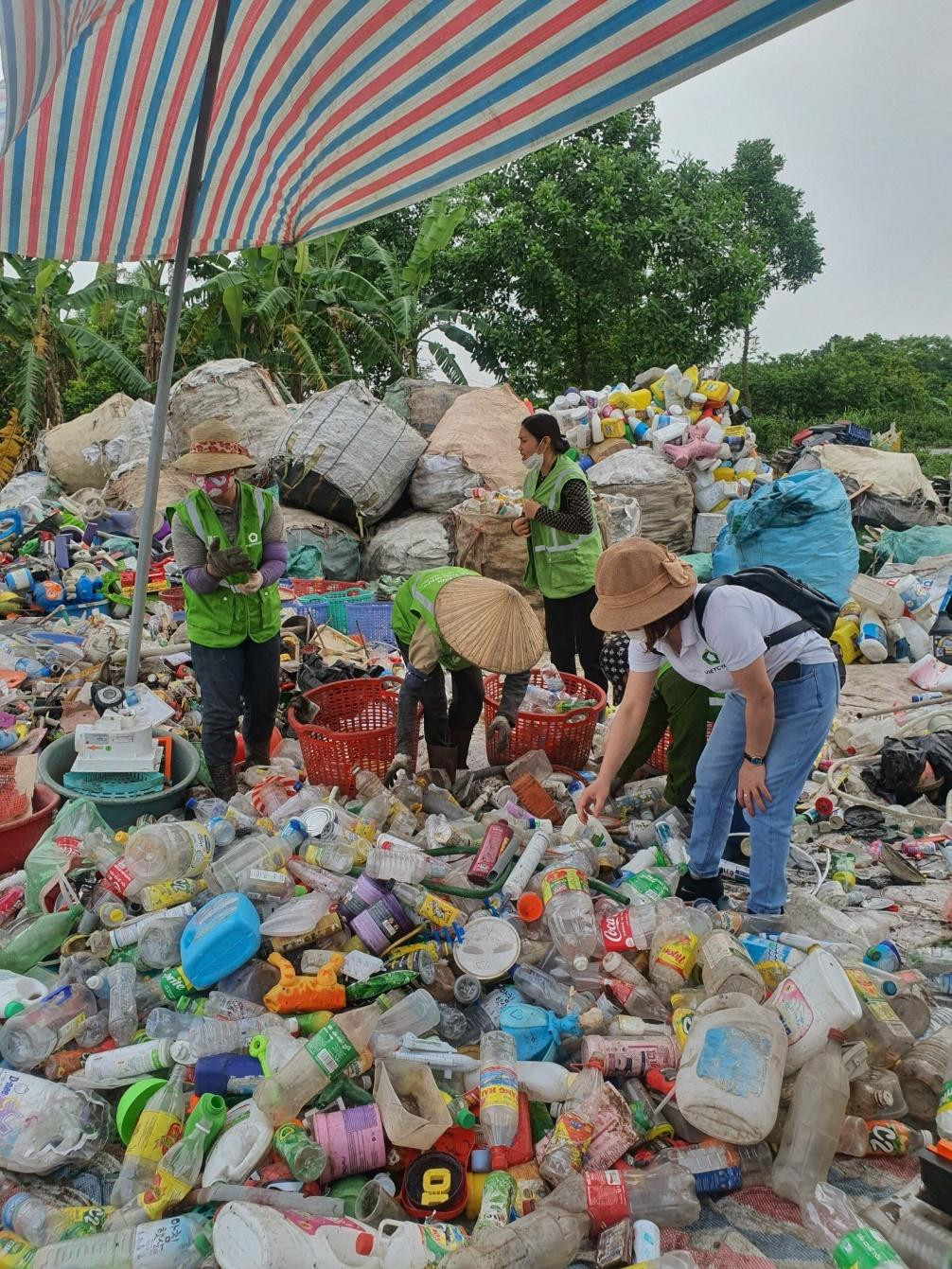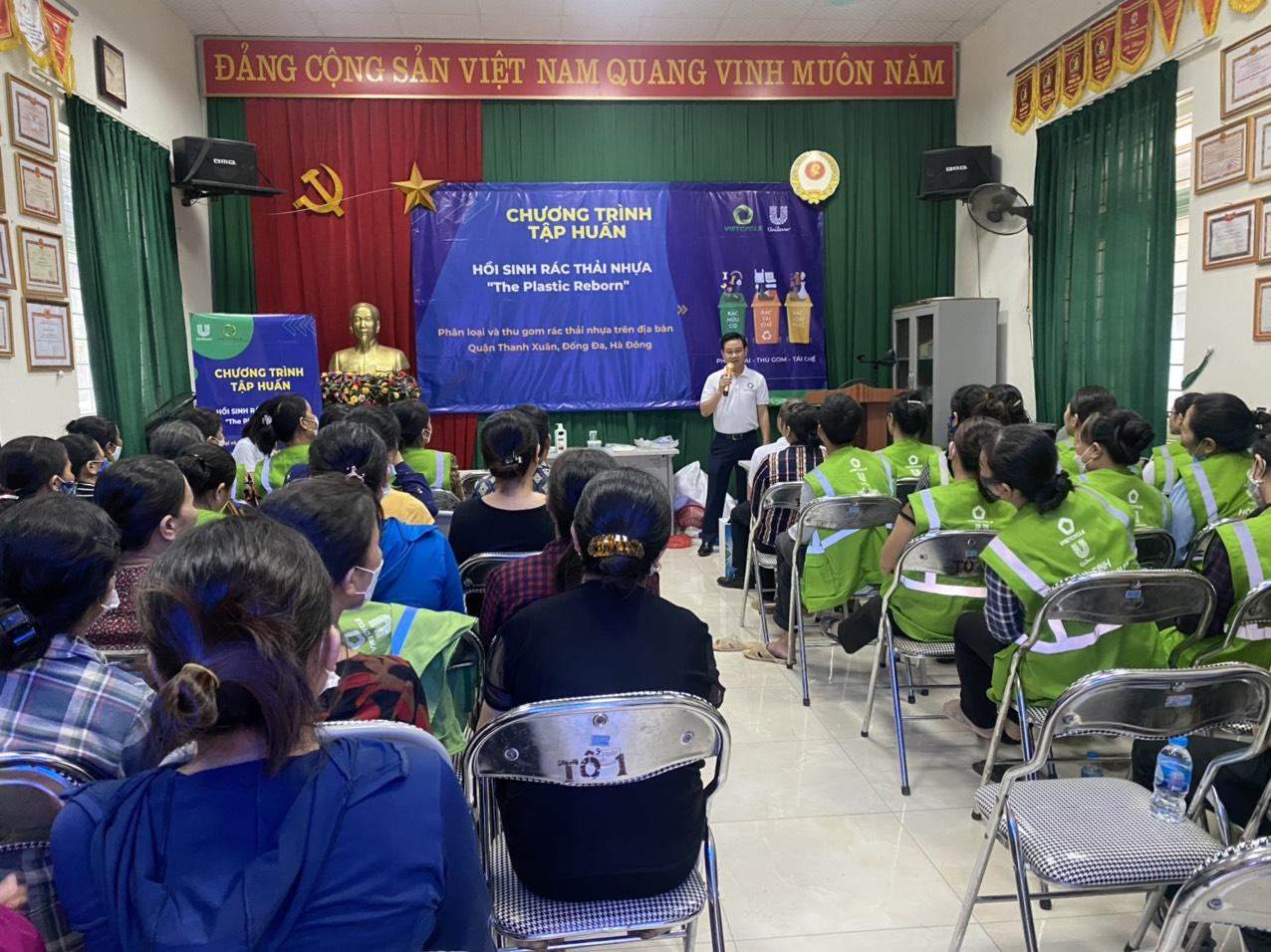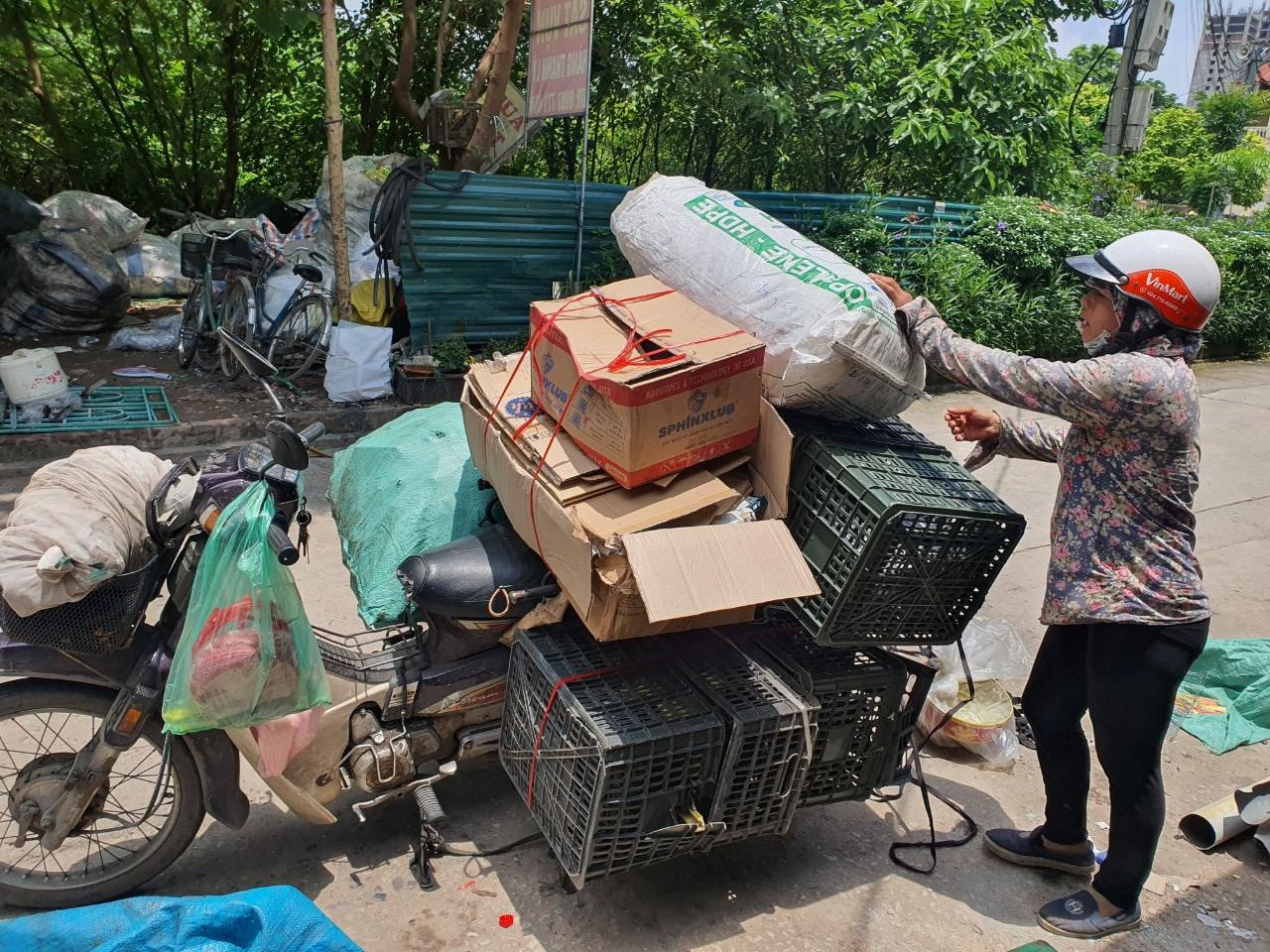Supporting female waste collectors in the informal economy is an important initiative that both promotes environmental protection and gender equity.
According to the United Nations Development Program (UNDP), over 30% of waste in Vietnam is collected through informal channels.
Facilitating female laborers' participation in the waste collection program empowers women by giving them opportunities to develop and to create added value for society and the community, thereby improving women’s social and family status, and driving gender equity, which is among Unilever’s pledges in its sustainable development strategy.

“They are the environment ambassadors, a force for a cleaner and better country, protecting the environment,” said Unilever Vietnam’s Head of Communications & Corporate Affairs.
Unilever Vietnam, along with partner VietCycle, has launched “The Plastic Reborn” program, aiming for plastic-waste segregation at the source to promote a circular economy.
This initiative has successfully built a collection system in Hanoi through recruiting and building on-street collection agents, large collection stations, and a labor network of more than 1,200 informal waste collectors. The program has also segregated and collected over 12,000 tons of plastic waste.
The program has implemented training and communication activities to collection associations, collection stations and informal waste collectors, helping them with information about hygienic conditions, labor safety, and protective equipment for the plastic waste collection process. This supports to improve health and living conditions for the collectors.

As one of the informal waste collectors participating in Unilever Vietnam's program “The Plastic Reborn” in Hanoi, Ms. Bui Thi Chin from Nam Dinh said: “Informal waste collection is a job with neither fixed working time nor stable income. We also ‘make friends’ with waste every day, but we paid little attention to hygiene. Since joining the program, my colleagues and I have been supported with labor protection equipment to protect our health. We are very grateful and hope that more women like us will also be able to participate in this program.”

Besides the story of women’s empowerment, the program “The Plastic Reborn” also helps Unilever Vietnam strongly promote its commitment to plastic management by 2025: collecting and processing more plastic waste than packaging amount sold in the market - underpinning to create a cycle for plastic waste. Additionally, the company also pledges that all packaging will be recyclable, and will reduce the amount of virgin plastic in packaging production by half through absolute reduction and the increase in use of post-consumer recycled plastic.
Unilever, cooperating with the Ministry of Natural Resources and Environment, is also known as the catalyst to build and lead the Public-Private Collaboration to drive Circular Economy in Plastic Waste Management in Vietnam, promoting four focuses: plastic waste segregation at source and collection, communication - education to raise people's awareness, application of science - innovation in plastic waste management, and policy advocacy.
“We strongly believe in the Government's directions, being firm in commitment, bold in action, and strong in cooperation, aiming to promote the plastic waste segregation at source and collection - the key helping brings plastic back to the economy, underpinning the Circular Economy,” said a representative of Unilever Vietnam.
PV